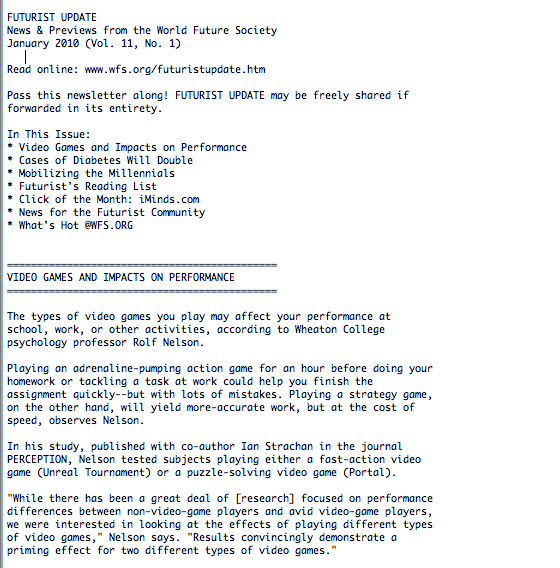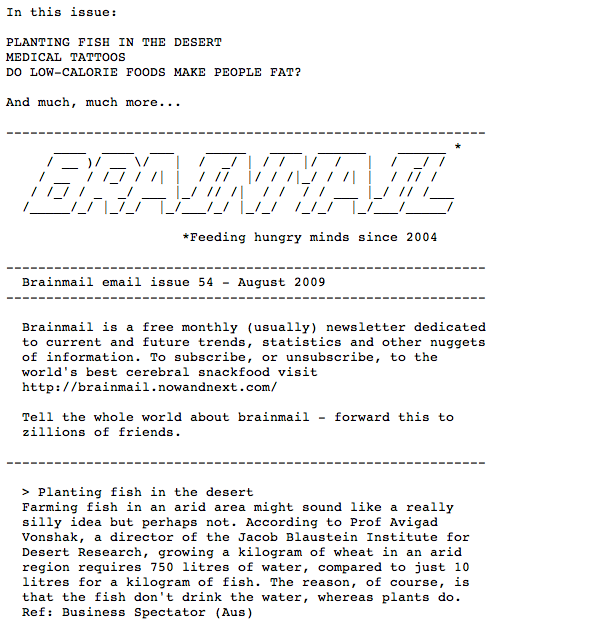I have just finished my second book (third if you count something with pictures way back in 1990). Yeah ha. Anyway, this means that I now have time again for other things. Top of the list is a three-month project looking at the future of public libraries. Next up is the new issue of What’s Next (issue 22) and I am badly behind with issues of brainmail so I need to catch-up with that.
On the subject of brainmail here’s a couple of bits from the new issue that is about to go up.
Fishy Theory
According to Prof. George Sugihara at the Scripts Institution of Oceanography, current fisheries management practice is exactly wrong. Instead of throwing the small ones back we should be keeping the small fishes and throwing the big ones back. This is because larger, older fish stabilise the fish population and provide higher quality offspring. Small fish can also struggle to survive when times are tough.
Grow Your Own
Sales of vegetable seeds in the UK have risen by 14% since late 2007 according to Suttons’ Seeds. In 2005 60% of Suttons’ sales came from flower seeds but vegetable seeds now account for 70% of revenue.
Food Provenance
A joint venture between China’s Shandong Institute of Standardisation and a Norwegian company called Trace Tracker has resulted in electronic ‘passports’ for food products. The passport is able to identify where a food is from and what tests, if any, the product has undergone. Expect to see more of this sort of thing, especially in Asia. Also expect consumers to be able to plug into this data via mobiles very soon.
Risky Business
Was the GFC (Global Financial Crisis) caused by the fact that people were in too good a mood? This is a possibility according to Ann Arbor at the University of Michigan. A study of 12 male and 12 female volunteers found that participants were more likely to partake in risky investment behaviour when other people were smiling at them. Moral: Never trust a smiling bank manager or accountant.
Top Energy Trends
According to a report published by Global Markets Direct, the top global energy trends for 2009 include; Stagnation in Capex on oil exploration and production, short-term oil price volatility (stabilising towards the end of 2009), reduced investment in clean energy projects, declining investments in new oil and gas projects, increasing demand for natural gas, rising electricity generation capacity, continued efforts by Europe to be less dependent on Russian gas, an increased role for nuclear energy and a continuing reliance on coal as the major energy source despite shifts to nuclear and other alternatives.
More brainmail at http://brainmail.nowandnext.com





